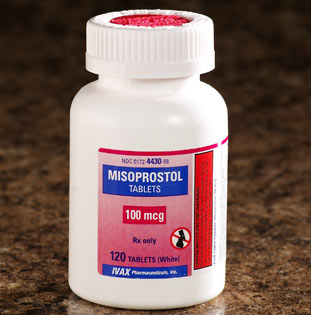The Biden administration on Thursday ended a long-standing restriction on a medication used to terminate early stage pregnancies, even as politicians across the United States intensified efforts that represent the most serious challenge to abortion rights in decades.
The elimination of the rule by the Food and Drug Administration means abortion pills can be prescribed through telehealth consultations with providers and mailed to patients in states where permitted by law. Previously, the pills could not be mailed, though that regulation had been temporarily suspended by the FDA.
In large swaths of the nation, however, strict state rules will dampen the impact. Several states ban sending abortion pills by mail and impose other restrictions.
The medication, mifepristone, was approved by the FDA in 2000 for what’s known as medication abortion. It is used with a second drug, misoprostol. The FDA required patients to pick up mifepristone in person at a hospital, clinic or medical office. There is no FDA requirement that the medication, also known as RU-486, be taken in a clinical setting, and most patients take it at home.
In April, the FDA waived the in-person dispensing requirement during the pandemic, saying research showed the action did not raise “serious safety concerns.” It then launched a scientific review to see whether restrictions on mifepristone should be lifted permanently, with Thursday as the deadline.
The agency, writing to a medical group that had sued the FDA over the rule, said it was dropping the in-person dispensing requirement “to minimize the burden on the health care delivery system” and “to ensure that the benefits of the drug outweigh the risks.” The FDA did not give an effective date for the change.
[…]
Loosening the federal restrictions will not change abortion access in many states with stricter regulations on the pills. Nineteen states have banned receiving the drugs through telehealth appointments, making the relaxed FDA rules irrelevant in places including Alabama, Arizona and Missouri. Some states impose other limitations on medication abortion, including allowing only physicians to prescribe the drug and mandating that patients take the pills under a doctor’s supervision rather than at home.
As federal officials have moved to ease restrictions on the drug, many states have tightened access. At least 16 states have proposed new restrictions on medication abortions this year, said Elizabeth Nash, state policy analyst for the Guttmacher Institute.
“State legislatures have been watching very carefully what happens at the federal level,” Nash said.
The highest-profile limitations were enacted in Texas, where lawmakers made it a felony to provide abortion pills after seven weeks of pregnancy and outlawed sending the drugs through the mail. Texas also banned nearly all abortion within the state by making any form of abortion illegal after about six weeks of pregnancy, though that law is being challenged in the courts.
The differing rules have the potential to widen disparities in abortion access, Nash said.
“Access looks very different depending on where you live,” Nash said. “Abortion access will continue to be very limited in states in the South, in the Plains and in the Midwest, and more accessible in states along the West Coast and the Northeast. … That’s problematic in and of itself, and could become an even bigger divide.”
Yeah, it sure is an issue here in Texas. The main question I have is how effectively will Texas be able to enforce its restrictions. It seems to me that there will be a lot of effort put into avoidance, and as such the only way to really make that law work as intended is to be pretty darned invasive. I don’t know how that will work.
Restrictive state laws are spurring an increase in some areas of what’s known as “self-managed abortions” in which patients buy illegal medication on the Internet and terminate pregnancies without interacting with the health-care system.
While some see this as a dangerous trend, others say the situation is sharply improved from decades earlier — because of the abortion pills.
Abigail Aiken, assistant professor of public affairs at the University of Texas at Austin, said she is often asked whether the country is headed to “back-alley abortions and infections” if Roe v. Wade is struck down.
“One of the things we have that we didn’t have in the ’60s and ’70s is access to abortion pills that are very safe, very effective if you have the right instructions,” Aiken said. “Self management is a safety net. And it’s also an ability to take your health care into your own hands when the state legislature is trying to block access.”
That sounds logical to me. And it should be known, this way around the law has been in use for some time. Again, the question to me is how vigorously Texas will try to crack down on that, and how heavy-handed such enforcement will be. I feel very confident saying that the zealots who pushed the bounty hunter law will not be satisfied by anything other than an all-out crackdown, whatever the consequences. If you think I’m being alarmist, look at where we are now and tell me honestly it’s not far worse than you thought it would be. The 19th and Mother Jones have more.

